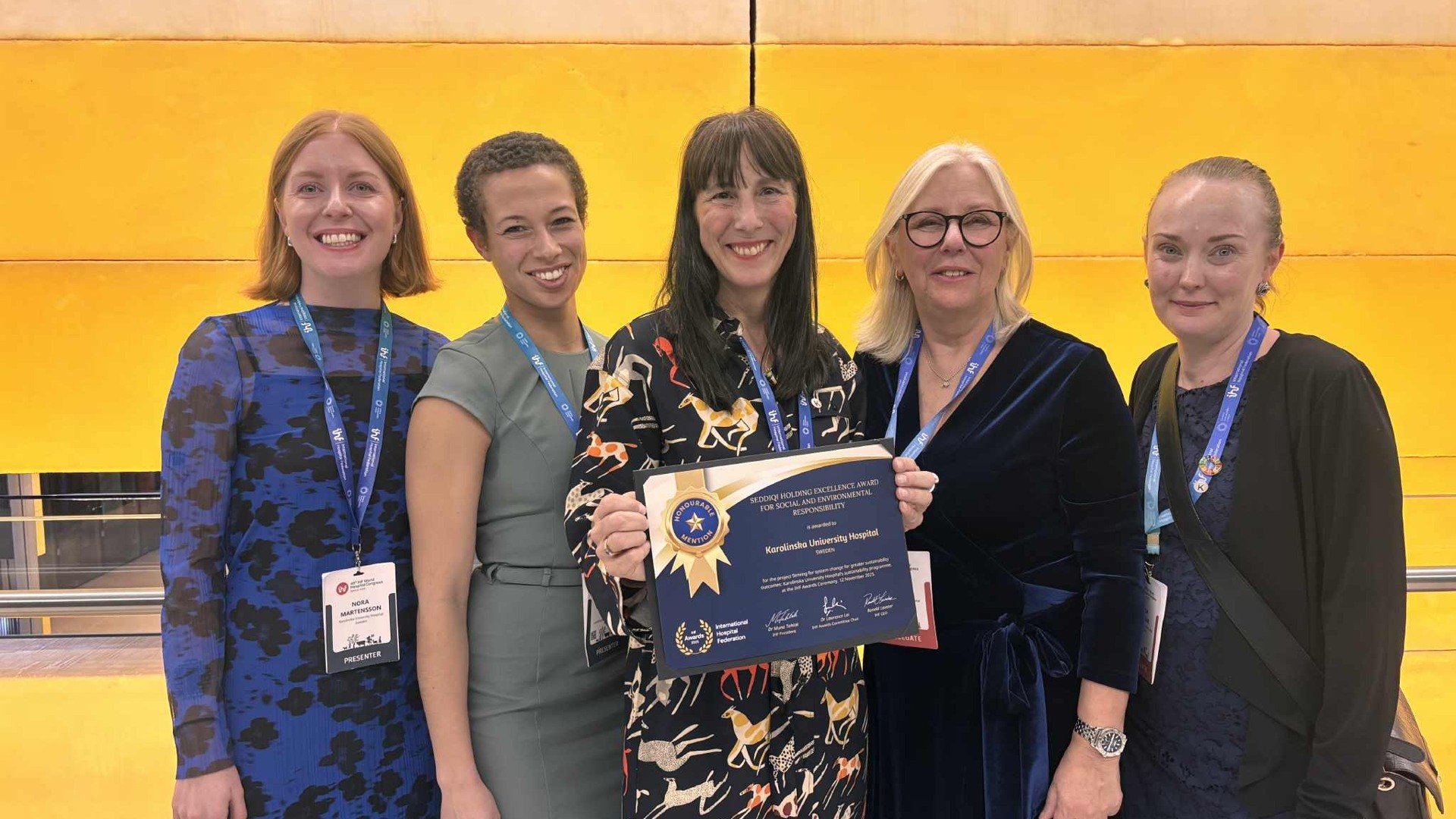Karolinska’s sustainability efforts recognized internationally

The International Hospital Federation (IHF) is a global non-profit membership organization that works to advance high-quality healthcare services through knowledge exchange and networking among healthcare actors worldwide.
Each year, the IHF presents several awards to highlight exemplary sustainability initiatives among healthcare providers across the globe. Karolinska received an honorable mention in the category Excellence Award for Social and Environmental Responsibility.
What does the honorable mention mean for Karolinska?
“It’s a recognition that shows we are at the forefront of sustainability work and gives us motivation to continue moving forward,” says Lisa Greger, Sustainability Coordinator at Karolinska University Hospital.
“During the conference, it became clear that Karolinska’s sustainability work has come a long way. We can measure and follow up on our efforts, which allows us to prioritize what matters most. This is thanks to a systematic approach that has been in place for many years and has produced very good results. The honorable mention shows that the work taking place throughout the organization is creating real sustainability outcomes.”
During the conference, Sustainability Coordinator Kankou Muller presented an example from Karolinska’s climate initiatives in the panel Greening Healthcare Systems: From Facility Upgrades to Global Tools.
Key reflections from Geneva
Lisa and her sustainability colleagues returned from Geneva with several important insights, including the strong link between public health and climate change, and the importance of moving from “doing less harm” to “doing more good.” They also emphasized that strong leadership is a prerequisite for sustainable development, and that sustainable development itself is a foundation for the healthcare of the future.
Karolinska’s long-term sustainability commitment
Karolinska has been actively working for many years to strengthen its social, environmental, and economic sustainability. Every day, staff strive to reduce the hospital’s environmental and climate impact and to enhance social and financial sustainability. This work is driven by employees and managers together with the Sustainability Unit, as well as the hospital’s sustainability coordinators, child rights representatives, and approximately 500 environmental ambassadors.
Karolinska’s Sustainability Program for 2023–2027 is based on Region Stockholm’s sustainability strategy and outlines several key goals. These include providing equitable care and a fair work environment, developing new methods to conserve the planet’s resources, switching to more environmentally friendly products, and replacing single-use materials with reusable alternatives. Other goals include reducing environmentally harmful emissions and strengthening collaboration with patients and their families.
Five successful initiatives in 2024
The hospital’s broad sustainability work continues to deliver results. In 2024, many departments made significant progress. But what’s the secret behind these achievements?
The hospital’s broad sustainability work continues to deliver results. In 2024, many departments made significant progress. But what’s the secret behind these achievements?
“I think one important factor is that resources have been allocated specifically to work on sustainability within these initiatives. The hospital’s follow-up processes have also become better linked to sustainability, which makes it easier for departments to track results and set priorities accordingly. In addition, we have developed a sustainability policy and integrated the social, environmental, and economic dimensions more closely to show how interconnected they are and that they should be addressed together. But the most important thing is the strong engagement in sustainability issues among both staff and leadership,” says Lisa Greger.
Notable projects include:
Looking ahead
Key priorities going forward include further reducing the hospital’s carbon emissions, with a particular focus on resource consumption such as materials, equipment, and pharmaceuticals, as well as advancing the findings from the social sustainability mapping.
More information about Karolinska’s sustainability work can be found here.